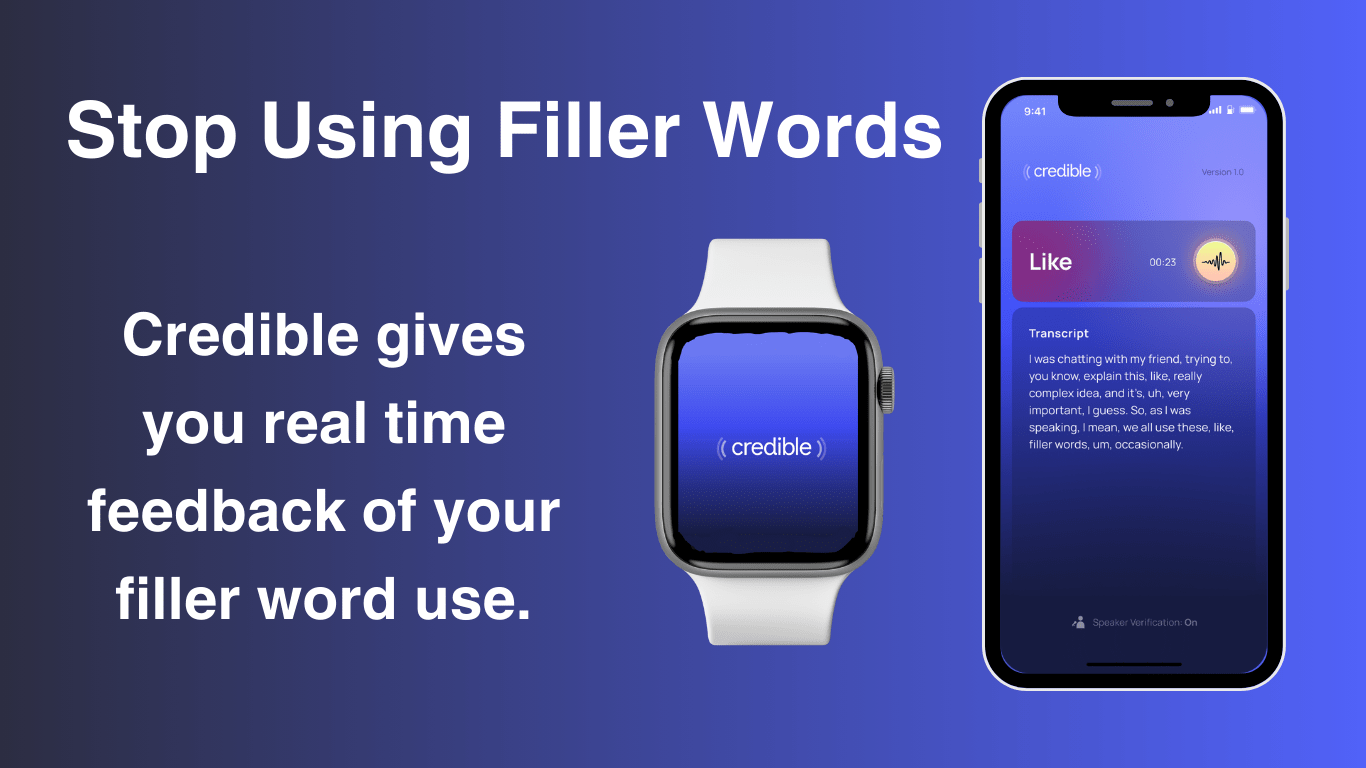Effective communication is a key skill of success. One very common issue that often impedes clear and concise communication is the use of filler words. These seemingly innocuous verbal crutches, such as “um,” “uh,” “like,” “basically,” and “you know,” can diminish the impact of your message and undermine your credibility as a speaker. The first step towards eradicating these linguistic nuisances is self-awareness, and the most effective method for achieving this awareness is to identify and address filler words in real-time conversations.
The Filler Word Conundrum
Filler words are linguistic habits that often find their way into our speech without conscious thought. They serve as verbal placeholders, allowing the speaker a moment to gather their thoughts or bridge a momentary gap in conversation, while holding the listeners attention. While these words may offer a temporary reprieve, they can have a detrimental impact on how your message is perceived.
Distracting and Detrimental
Filler words can be distracting for listeners, pulling their attention away from the substance of your message. Overuse of these words and phrases may signal uncertainty, lack of preparation, or a lack of confidence in your words. In professional settings, where credibility is paramount, the constant presence of filler words can undermine your authority and hinder career advancement.
The Power of Awareness
The only way to eliminate filler words is to build awareness. Many individuals may not even realize they are using these verbal placeholders until they actively pay attention to their speech patterns. One effective method to cultivate this awareness is to have a trusted friend or colleague provide real-time feedback during conversations or presentations. This external perspective can be instrumental in highlighting your use of filler words and prompting you to address them.
Substituting Filler Words with Silence
Once armed with the knowledge of your filler word tendencies, the next step is to replace them with intentional pauses. Silence can be a powerful tool in communication. A well-timed pause not only allows you to gather your thoughts but also gives your audience a moment to absorb the information. Pauses convey confidence and deliberation, enhancing the overall impact of your message.
Practice Makes Perfect
Breaking the habit of filler word usage requires consistent effort and practice. Engage in mock conversations or presentations, focusing on eliminating filler words and incorporating deliberate pauses. Recording yourself can provide valuable insights into your progress and areas that still need improvement. As you become more conscious of your speech patterns, the substitution of filler words with purposeful pauses will become second nature.
The Impact on Career Advancement
Effective communication is a key differentiator in the professional world. Those who can articulate their thoughts clearly and confidently are often perceived as more competent and capable. By addressing and eliminating filler words, you not only enhance your communication skills but also bolster your credibility in the workplace, paving the way for career advancement and success.
Conclusion
In the area of effective communication, the battle against filler words is a worthy pursuit. The journey begins with self-awareness, recognizing the presence of these linguistic crutches in real-time conversations. Once identified, intentional pauses can replace filler words, transforming your speech into a more polished and impactful form of expression. With consistent practice, the elimination of filler words becomes a powerful tool in your professional arsenal, propelling you towards career success and heightened credibility.


Leave a Reply